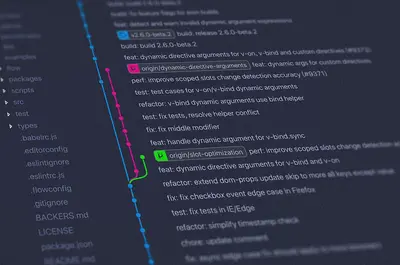Tekton provides a powerful, Kubernetes-native CI/CD framework that enables building secure, scalable pipelines on Rocky Linux. This comprehensive guide walks through implementing production-ready CI/CD pipelines with security best practices, automation, and enterprise features.
Understanding Tekton Architecture
Tekton is a cloud-native CI/CD solution that runs on Kubernetes, providing:
- Kubernetes Native: Leverages CRDs for pipeline definitions
- Declarative: YAML-based pipeline configuration
- Reusable: Shared tasks and pipeline components
- Scalable: Horizontal scaling with Kubernetes
- Secure: Built-in security features and RBAC integration
Core Components
- Tasks: Individual units of work (build, test, deploy)
- Pipelines: Ordered series of tasks
- TaskRuns: Execution instances of tasks
- PipelineRuns: Execution instances of pipelines
- Triggers: Event-driven pipeline execution
Prerequisites
Before implementing Tekton pipelines:
- Rocky Linux 9 with Kubernetes cluster
- kubectl and helm installed
- Container registry access
- Git repository for source code
- Basic Kubernetes knowledge
- SSL certificates for secure endpoints
Setting Up Kubernetes on Rocky Linux
Installing Kubernetes
# Disable SELinux temporarily for installation
sudo setenforce 0
sudo sed -i 's/^SELINUX=enforcing$/SELINUX=permissive/' /etc/selinux/config
# Install required packages
sudo dnf install -y epel-release
sudo dnf install -y kubelet kubeadm kubectl
# Configure kernel modules
cat <<EOF | sudo tee /etc/modules-load.d/k8s.conf
overlay
br_netfilter
EOF
sudo modprobe overlay
sudo modprobe br_netfilter
# Configure sysctl parameters
cat <<EOF | sudo tee /etc/sysctl.d/k8s.conf
net.bridge.bridge-nf-call-iptables = 1
net.bridge.bridge-nf-call-ip6tables = 1
net.ipv4.ip_forward = 1
EOF
sudo sysctl --system
# Initialize Kubernetes cluster
sudo kubeadm init --pod-network-cidr=10.244.0.0/16
# Configure kubectl for user
mkdir -p $HOME/.kube
sudo cp -i /etc/kubernetes/admin.conf $HOME/.kube/config
sudo chown $(id -u):$(id -g) $HOME/.kube/config
# Install network plugin (Flannel)
kubectl apply -f https://github.com/flannel-io/flannel/releases/latest/download/kube-flannel.ymlInstalling Tekton
Core Components Installation
# Install Tekton Pipelines
kubectl apply --filename https://storage.googleapis.com/tekton-releases/pipeline/latest/release.yaml
# Install Tekton Triggers
kubectl apply --filename https://storage.googleapis.com/tekton-releases/triggers/latest/release.yaml
# Install Tekton Dashboard
kubectl apply --filename https://storage.googleapis.com/tekton-releases/dashboard/latest/release-full.yaml
# Verify installation
kubectl get pods --namespace tekton-pipelines
kubectl get pods --namespace tekton-pipelines-resolvers
# Install Tekton CLI
curl -LO https://github.com/tektoncd/cli/releases/latest/download/tkn_0.35.0_Linux_x86_64.tar.gz
sudo tar xvzf tkn_0.35.0_Linux_x86_64.tar.gz -C /usr/local/bin/ tknConfiguring Secure Access
# tekton-ingress.yaml
apiVersion: networking.k8s.io/v1
kind: Ingress
metadata:
name: tekton-dashboard
namespace: tekton-pipelines
annotations:
cert-manager.io/cluster-issuer: "letsencrypt-prod"
nginx.ingress.kubernetes.io/auth-type: basic
nginx.ingress.kubernetes.io/auth-secret: tekton-basic-auth
nginx.ingress.kubernetes.io/auth-realm: "Tekton Dashboard"
spec:
tls:
- hosts:
- tekton.example.com
secretName: tekton-tls
rules:
- host: tekton.example.com
http:
paths:
- path: /
pathType: Prefix
backend:
service:
name: tekton-dashboard
port:
number: 9097Creating Secure Pipeline Components
Service Account with RBAC
# tekton-rbac.yaml
apiVersion: v1
kind: ServiceAccount
metadata:
name: tekton-pipeline-sa
namespace: default
secrets:
- name: docker-registry-creds
- name: git-credentials
---
apiVersion: rbac.authorization.k8s.io/v1
kind: Role
metadata:
name: tekton-pipeline-role
namespace: default
rules:
- apiGroups: [""]
resources: ["pods", "services", "configmaps", "secrets"]
verbs: ["get", "list", "watch", "create", "update", "patch", "delete"]
- apiGroups: ["apps"]
resources: ["deployments", "replicasets"]
verbs: ["get", "list", "watch", "create", "update", "patch", "delete"]
- apiGroups: ["tekton.dev"]
resources: ["tasks", "pipelines", "taskruns", "pipelineruns"]
verbs: ["get", "list", "watch", "create", "update", "patch", "delete"]
---
apiVersion: rbac.authorization.k8s.io/v1
kind: RoleBinding
metadata:
name: tekton-pipeline-binding
namespace: default
roleRef:
apiGroup: rbac.authorization.k8s.io
kind: Role
name: tekton-pipeline-role
subjects:
- kind: ServiceAccount
name: tekton-pipeline-sa
namespace: defaultSecure Credentials Management
# docker-registry-secret.yaml
apiVersion: v1
kind: Secret
metadata:
name: docker-registry-creds
namespace: default
annotations:
tekton.dev/docker-0: https://index.docker.io/v1/
type: kubernetes.io/basic-auth
stringData:
username: your-registry-username
password: your-registry-password
---
# git-credentials-secret.yaml
apiVersion: v1
kind: Secret
metadata:
name: git-credentials
namespace: default
annotations:
tekton.dev/git-0: https://github.com
type: kubernetes.io/basic-auth
stringData:
username: your-github-username
password: your-github-tokenBuilding Reusable Tasks
Source Code Scanning Task
# task-security-scan.yaml
apiVersion: tekton.dev/v1beta1
kind: Task
metadata:
name: security-scan
namespace: default
spec:
description: Scan source code for vulnerabilities
params:
- name: source-path
type: string
default: /workspace/source
- name: severity-threshold
type: string
default: "HIGH"
workspaces:
- name: source
steps:
- name: trivy-scan
image: aquasecurity/trivy:latest
script: |
#!/bin/bash
set -e
echo "Scanning filesystem for vulnerabilities..."
trivy filesystem --severity $(params.severity-threshold) \
--exit-code 1 \
--no-progress \
--format json \
--output /workspace/scan-results.json \
$(params.source-path)
echo "Scan completed. Results:"
cat /workspace/scan-results.json | jq .
- name: sonarqube-scan
image: sonarsource/sonar-scanner-cli:latest
env:
- name: SONAR_HOST_URL
valueFrom:
secretKeyRef:
name: sonarqube-config
key: url
- name: SONAR_TOKEN
valueFrom:
secretKeyRef:
name: sonarqube-config
key: token
script: |
#!/bin/bash
cd $(params.source-path)
sonar-scanner \
-Dsonar.projectKey=my-project \
-Dsonar.sources=. \
-Dsonar.host.url=$SONAR_HOST_URL \
-Dsonar.token=$SONAR_TOKENContainer Build Task with Security
# task-build-secure.yaml
apiVersion: tekton.dev/v1beta1
kind: Task
metadata:
name: build-secure
namespace: default
spec:
description: Build container image with security checks
params:
- name: IMAGE
type: string
- name: DOCKERFILE
type: string
default: ./Dockerfile
workspaces:
- name: source
- name: docker-credentials
mountPath: /kaniko/.docker
results:
- name: IMAGE_DIGEST
description: Digest of the built image
steps:
- name: dockerfile-lint
image: hadolint/hadolint:latest-alpine
script: |
#!/bin/sh
echo "Linting Dockerfile..."
hadolint $(params.DOCKERFILE) || exit 1
- name: build-image
image: gcr.io/kaniko-project/executor:latest
args:
- --context=$(workspaces.source.path)
- --dockerfile=$(params.DOCKERFILE)
- --destination=$(params.IMAGE)
- --digest-file=/tekton/results/IMAGE_DIGEST
- --cache=true
- --cache-ttl=24h
- --snapshotMode=redo
- --use-new-run
- name: scan-image
image: aquasecurity/trivy:latest
script: |
#!/bin/bash
echo "Scanning container image for vulnerabilities..."
trivy image --severity CRITICAL,HIGH \
--exit-code 1 \
--no-progress \
$(params.IMAGE)@$(cat /tekton/results/IMAGE_DIGEST)Deployment Task with Verification
# task-deploy-verify.yaml
apiVersion: tekton.dev/v1beta1
kind: Task
metadata:
name: deploy-verify
namespace: default
spec:
description: Deploy application and verify deployment
params:
- name: deployment-name
type: string
- name: image
type: string
- name: namespace
type: string
default: default
steps:
- name: deploy
image: bitnami/kubectl:latest
script: |
#!/bin/bash
set -e
# Update deployment image
kubectl set image deployment/$(params.deployment-name) \
app=$(params.image) \
-n $(params.namespace)
# Wait for rollout to complete
kubectl rollout status deployment/$(params.deployment-name) \
-n $(params.namespace) \
--timeout=300s
- name: verify-deployment
image: curlimages/curl:latest
script: |
#!/bin/sh
set -e
# Get service endpoint
SERVICE_IP=$(kubectl get svc $(params.deployment-name) \
-n $(params.namespace) \
-o jsonpath='{.status.loadBalancer.ingress[0].ip}')
# Health check
for i in {1..30}; do
if curl -f http://${SERVICE_IP}/health; then
echo "Deployment verified successfully"
exit 0
fi
echo "Waiting for application to be ready..."
sleep 10
done
echo "Deployment verification failed"
exit 1Creating Secure CI/CD Pipeline
Complete Pipeline Definition
# pipeline-secure-cicd.yaml
apiVersion: tekton.dev/v1beta1
kind: Pipeline
metadata:
name: secure-cicd-pipeline
namespace: default
spec:
description: Secure CI/CD pipeline with all checks
params:
- name: git-repo-url
type: string
- name: git-revision
type: string
default: main
- name: image-name
type: string
- name: deployment-name
type: string
workspaces:
- name: shared-workspace
- name: docker-credentials
- name: git-credentials
tasks:
- name: fetch-source
taskRef:
name: git-clone
kind: ClusterTask
workspaces:
- name: output
workspace: shared-workspace
- name: basic-auth
workspace: git-credentials
params:
- name: url
value: $(params.git-repo-url)
- name: revision
value: $(params.git-revision)
- name: security-scan
taskRef:
name: security-scan
runAfter:
- fetch-source
workspaces:
- name: source
workspace: shared-workspace
params:
- name: source-path
value: /workspace/source
- name: run-tests
taskRef:
name: test-runner
runAfter:
- security-scan
workspaces:
- name: source
workspace: shared-workspace
- name: build-image
taskRef:
name: build-secure
runAfter:
- run-tests
workspaces:
- name: source
workspace: shared-workspace
- name: docker-credentials
workspace: docker-credentials
params:
- name: IMAGE
value: $(params.image-name):$(tasks.fetch-source.results.commit)
- name: deploy-staging
taskRef:
name: deploy-verify
runAfter:
- build-image
params:
- name: deployment-name
value: $(params.deployment-name)-staging
- name: image
value: $(params.image-name)@$(tasks.build-image.results.IMAGE_DIGEST)
- name: namespace
value: staging
- name: integration-tests
taskRef:
name: integration-test-runner
runAfter:
- deploy-staging
params:
- name: endpoint
value: http://$(params.deployment-name)-staging.staging.svc.cluster.local
- name: deploy-production
taskRef:
name: deploy-verify
runAfter:
- integration-tests
params:
- name: deployment-name
value: $(params.deployment-name)
- name: image
value: $(params.image-name)@$(tasks.build-image.results.IMAGE_DIGEST)
- name: namespace
value: productionImplementing Pipeline Triggers
GitHub Webhook Integration
# trigger-github-webhook.yaml
apiVersion: triggers.tekton.dev/v1beta1
kind: TriggerTemplate
metadata:
name: github-pipeline-template
namespace: default
spec:
params:
- name: git-repo-url
- name: git-revision
- name: git-repo-name
resourcetemplates:
- apiVersion: tekton.dev/v1beta1
kind: PipelineRun
metadata:
generateName: $(tt.params.git-repo-name)-run-
spec:
pipelineRef:
name: secure-cicd-pipeline
params:
- name: git-repo-url
value: $(tt.params.git-repo-url)
- name: git-revision
value: $(tt.params.git-revision)
- name: image-name
value: registry.example.com/$(tt.params.git-repo-name)
- name: deployment-name
value: $(tt.params.git-repo-name)
workspaces:
- name: shared-workspace
volumeClaimTemplate:
spec:
accessModes:
- ReadWriteOnce
resources:
requests:
storage: 1Gi
- name: docker-credentials
secret:
secretName: docker-registry-creds
- name: git-credentials
secret:
secretName: git-credentials
serviceAccountName: tekton-pipeline-sa
---
apiVersion: triggers.tekton.dev/v1beta1
kind: TriggerBinding
metadata:
name: github-push-binding
namespace: default
spec:
params:
- name: git-repo-url
value: $(body.repository.clone_url)
- name: git-revision
value: $(body.after)
- name: git-repo-name
value: $(body.repository.name)
---
apiVersion: triggers.tekton.dev/v1beta1
kind: EventListener
metadata:
name: github-listener
namespace: default
spec:
serviceAccountName: tekton-triggers-sa
triggers:
- name: github-push-events
interceptors:
- ref:
name: github
params:
- name: secretRef
value:
secretName: github-webhook-secret
secretKey: webhook-secret
- name: eventTypes
value: ["push", "pull_request"]
bindings:
- ref: github-push-binding
template:
ref: github-pipeline-templateSecuring Webhook Endpoint
# Create webhook secret
kubectl create secret generic github-webhook-secret \
--from-literal=webhook-secret=$(openssl rand -base64 32) \
-n default
# Create ingress for webhook
cat <<EOF | kubectl apply -f -
apiVersion: networking.k8s.io/v1
kind: Ingress
metadata:
name: tekton-webhooks
namespace: default
annotations:
cert-manager.io/cluster-issuer: "letsencrypt-prod"
nginx.ingress.kubernetes.io/ssl-redirect: "true"
spec:
tls:
- hosts:
- webhooks.example.com
secretName: webhooks-tls
rules:
- host: webhooks.example.com
http:
paths:
- path: /hooks
pathType: Prefix
backend:
service:
name: el-github-listener
port:
number: 8080
EOFAdvanced Security Features
Secret Scanning Prevention
# task-secret-scan.yaml
apiVersion: tekton.dev/v1beta1
kind: Task
metadata:
name: secret-scan
namespace: default
spec:
description: Scan for exposed secrets and credentials
workspaces:
- name: source
steps:
- name: gitleaks-scan
image: zricethezav/gitleaks:latest
script: |
#!/bin/bash
set -e
echo "Scanning for exposed secrets..."
gitleaks detect --source=/workspace/source --verbose
if [ $? -eq 0 ]; then
echo "No secrets found"
else
echo "CRITICAL: Exposed secrets detected!"
exit 1
fi
- name: trufflehog-scan
image: trufflesecurity/trufflehog:latest
script: |
#!/bin/bash
cd /workspace/source
trufflehog filesystem . --failSBOM Generation and Signing
# task-sbom-generate.yaml
apiVersion: tekton.dev/v1beta1
kind: Task
metadata:
name: generate-sbom
namespace: default
spec:
description: Generate and sign Software Bill of Materials
params:
- name: image
type: string
workspaces:
- name: source
steps:
- name: generate-sbom
image: anchore/syft:latest
script: |
#!/bin/bash
set -e
echo "Generating SBOM..."
syft $(params.image) -o spdx-json > /workspace/sbom.json
echo "SBOM generated successfully"
cat /workspace/sbom.json | jq '.name, .creationInfo'
- name: sign-sbom
image: gcr.io/projectsigstore/cosign:latest
env:
- name: COSIGN_EXPERIMENTAL
value: "1"
script: |
#!/bin/bash
set -e
echo "Signing SBOM with Cosign..."
cosign sign-blob /workspace/sbom.json \
--output-signature /workspace/sbom.sig \
--output-certificate /workspace/sbom.cert
echo "Uploading SBOM to registry..."
cosign attach sbom --sbom /workspace/sbom.json $(params.image)Monitoring and Observability
Pipeline Metrics Collection
# tekton-metrics-config.yaml
apiVersion: v1
kind: ConfigMap
metadata:
name: config-observability
namespace: tekton-pipelines
data:
_example: |
metrics.backend-destination: prometheus
metrics.taskrun.level: "task"
metrics.taskrun.duration-type: "histogram"
metrics.pipelinerun.level: "pipeline"
metrics.pipelinerun.duration-type: "histogram"
---
apiVersion: v1
kind: Service
metadata:
name: tekton-pipelines-controller-metrics
namespace: tekton-pipelines
labels:
app: tekton-pipelines-controller
spec:
ports:
- name: metrics
port: 9090
protocol: TCP
targetPort: 9090
selector:
app.kubernetes.io/name: controller
app.kubernetes.io/component: controller
app.kubernetes.io/part-of: tekton-pipelinesGrafana Dashboard Configuration
{
"dashboard": {
"title": "Tekton CI/CD Pipeline Metrics",
"panels": [
{
"title": "Pipeline Success Rate",
"targets": [
{
"expr": "sum(rate(tekton_pipelines_controller_pipelinerun_duration_seconds_count{status=\"success\"}[5m])) / sum(rate(tekton_pipelines_controller_pipelinerun_duration_seconds_count[5m])) * 100"
}
]
},
{
"title": "Average Pipeline Duration",
"targets": [
{
"expr": "histogram_quantile(0.95, sum(rate(tekton_pipelines_controller_pipelinerun_duration_seconds_bucket[5m])) by (le))"
}
]
},
{
"title": "Task Failure Rate",
"targets": [
{
"expr": "sum(rate(tekton_pipelines_controller_taskrun_duration_seconds_count{status=\"failed\"}[5m])) by (task)"
}
]
}
]
}
}Best Practices and Security Hardening
Pipeline Security Checklist
-
Access Control
- Implement RBAC for pipeline resources
- Use separate service accounts per environment
- Rotate credentials regularly
-
Image Security
- Scan all container images
- Sign images with Cosign
- Use admission controllers for policy enforcement
-
Secret Management
- Use external secret stores (Vault, AWS Secrets Manager)
- Never hardcode secrets in pipeline definitions
- Implement secret rotation
-
Network Security
- Use NetworkPolicies to restrict pod communication
- Enable TLS for all endpoints
- Implement webhook signature verification
-
Audit and Compliance
- Enable audit logging for all pipeline activities
- Generate SBOMs for all deployments
- Implement compliance scanning
Resource Limits and Quotas
# pipeline-resource-quota.yaml
apiVersion: v1
kind: ResourceQuota
metadata:
name: pipeline-quota
namespace: default
spec:
hard:
requests.cpu: "10"
requests.memory: 20Gi
persistentvolumeclaims: "10"
pods: "50"
---
apiVersion: v1
kind: LimitRange
metadata:
name: pipeline-limits
namespace: default
spec:
limits:
- max:
cpu: "2"
memory: 4Gi
min:
cpu: 100m
memory: 128Mi
default:
cpu: 500m
memory: 1Gi
defaultRequest:
cpu: 100m
memory: 128Mi
type: ContainerTroubleshooting Common Issues
Debugging Failed Pipeline Runs
# List recent pipeline runs
tkn pipelinerun list
# Get detailed logs for a specific run
tkn pipelinerun logs my-pipeline-run-xyz -f
# Describe pipeline run for status
kubectl describe pipelinerun my-pipeline-run-xyz
# Check task run details
tkn taskrun list
tkn taskrun logs my-task-run-abc
# Debug pod issues
kubectl get pods -l tekton.dev/pipelineRun=my-pipeline-run-xyz
kubectl logs -l tekton.dev/pipelineRun=my-pipeline-run-xyz --all-containersPerformance Optimization
# parallel-tasks-pipeline.yaml
apiVersion: tekton.dev/v1beta1
kind: Pipeline
metadata:
name: optimized-pipeline
spec:
tasks:
- name: unit-tests
taskRef:
name: run-tests
params:
- name: test-type
value: unit
- name: integration-tests
taskRef:
name: run-tests
params:
- name: test-type
value: integration
- name: security-scan
taskRef:
name: security-scan
# These tasks run in parallel after source is fetched
- name: build-app
taskRef:
name: build-secure
runAfter:
- unit-tests
- integration-tests
- security-scanConclusion
Building secure CI/CD pipelines with Tekton on Rocky Linux provides a robust, cloud-native solution for modern software delivery. By implementing security checks at every stage, using proper RBAC, and following best practices, you can create enterprise-grade pipelines that ensure both speed and security in your deployment process.
The combination of Tekton’s Kubernetes-native architecture with Rocky Linux’s stability creates a powerful platform for continuous integration and deployment that scales with your needs while maintaining security and compliance requirements.




